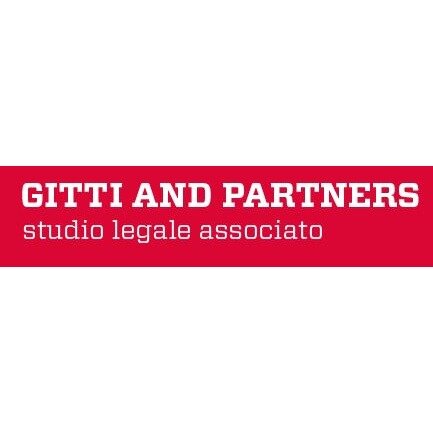Best Sustainable Finance Lawyers in Italy
Share your needs with us, get contacted by law firms.
Free. Takes 2 min.
Or refine your search by selecting a city:
List of the best lawyers in Italy
About Sustainable Finance Law in Italy
Sustainable finance refers to financial services that integrate environmental, social, and governance (ESG) criteria into business and investment decisions. In Italy, sustainable finance is becoming increasingly important due to the European Union’s focus on green investments and the transition toward a low-carbon economy. Italian sustainable finance law governs how financial products and services address climate risks, promote transparency, and support sustainable growth. Laws and regulations require banks, insurers, asset managers, and companies to consider sustainability factors when making decisions, ensuring alignment with both EU standards and national priorities.
Why You May Need a Lawyer
Sustainable finance law is complex and evolving, creating situations where having legal assistance is essential. You may require a lawyer if:
- You manage investments and must comply with ESG or sustainability regulations.
- Your business is seeking green financing or issuing green bonds.
- You are subject to new disclosure obligations related to ESG criteria.
- You want to ensure your company's activities align with EU sustainable finance regulations like the SFDR or Taxonomy Regulation.
- Your organization faces regulatory investigations or penalties for non-compliance with sustainable finance laws.
- You need to conduct due diligence for mergers, acquisitions, or partnerships involving sustainability aspects.
- You wish to adopt internal policies to improve ESG practices or reporting.
- You operate in sectors with high environmental risks and need advice to mitigate legal exposure.
Local Laws Overview
Italy’s sustainable finance framework is shaped by EU directives and national policies. The most influential laws include:
- EU Sustainable Finance Disclosure Regulation (SFDR) - Requires financial market participants to disclose how they integrate sustainability risks in their investment processes.
- EU Taxonomy Regulation - Establishes criteria to determine whether an activity is “environmentally sustainable”.
- Corporate Sustainability Reporting Directive (CSRD) - Requires larger companies to disclose sustainability information.
- Banca d’Italia Guidelines - The Bank of Italy offers specific guidance on sustainable finance for credit and financial institutions, including risk assessment and reporting standards.
- National Strategy for Sustainable Development - Sets Italy’s priorities for advancing sustainability in line with the UN Sustainable Development Goals.
- Green Bonds and Sustainability-Linked Instruments - There are frameworks and requirements to regulate the issuance of green bonds and similar financing products.
Italian regulators such as Consob (the financial markets authority) and Banca d’Italia play central roles in supervising compliance. Companies and financial institutions must ensure their policies and reporting are transparent and complete, and that all product offerings are accurately labeled in terms of sustainability.
Frequently Asked Questions
What is sustainable finance?
Sustainable finance incorporates ESG criteria into financial decisions to support environmental protection, social responsibility, and good governance, aiming for long-term value creation.
Who must comply with sustainable finance regulations in Italy?
Banks, investment firms, asset managers, insurance companies, and publicly listed companies are all subject to sustainable finance laws and reporting requirements in Italy.
What is the EU Taxonomy Regulation and how does it affect me?
The EU Taxonomy Regulation defines what qualifies as an environmentally sustainable activity. Companies and financial institutions must use this framework to report on the sustainability of their activities and products.
Are Italian companies required to disclose sustainability information?
Yes. Larger companies, and those listed on regulated markets, are required by law to include detailed information about ESG factors and sustainability risks in their annual reports.
What is a green bond?
A green bond is a fixed-income financial instrument used specifically to raise funds for projects with environmental benefits, such as renewable energy, energy efficiency, or pollution prevention.
Can small businesses access sustainable finance products?
Yes. While requirements may be tailored based on size and sector, small and medium-sized enterprises (SMEs) can access loans and funding aimed at supporting sustainable projects.
What happens if my company does not comply with sustainable finance laws?
Non-compliance can result in regulatory penalties, reputational harm, and loss of access to financing. Italian and EU authorities regularly monitor and enforce compliance.
How can a lawyer help with sustainable finance regulations?
A lawyer can help interpret complex regulations, ensure correct disclosures, draft green financing contracts, respond to regulatory inquiries, and develop robust compliance programs.
Are there incentives for pursuing sustainable finance in Italy?
Yes. There are government-backed incentives, grants, and tax benefits for companies and projects that meet specific sustainability criteria.
How do I know if a financial product is truly sustainable?
Products labeled as sustainable must meet specific disclosure requirements. Always check official documentation, third-party certifications, and ask for legal advice if in doubt.
Additional Resources
- Consob - Commissione Nazionale per le Società e la Borsa (Italy's financial markets regulator)
- Banca d’Italia - The national central bank, offering official guidelines on sustainable finance
- Ministry of Economy and Finance (MEF) - Responsible for economic policy and issuance of green government bonds
- Ministry for the Environment and Energy Security - Provides information on environmental initiatives and legislation
- Forum per la Finanza Sostenibile - An association promoting sustainable investment practices in Italy
- United Nations Environment Programme Finance Initiative (UNEP FI) - International guidance and best practices for sustainable finance
Next Steps
If you need legal assistance in the field of sustainable finance in Italy, consider the following steps:
- Assess Your Needs - Clarify whether you need help with compliance, reporting, product structuring, or dispute resolution.
- Gather Documentation - Collect your company’s sustainability policies, previous reports, contracts, and correspondence related to sustainable finance.
- Identify a Specialist Lawyer - Seek a lawyer or firm specializing in financial law and sustainability. Experience in EU and Italian regulatory matters is an asset.
- Request an Initial Consultation - Most lawyers offer a first meeting to assess your situation and discuss strategies.
- Stay Informed - Sustainable finance law evolves rapidly. Subscribe to industry updates and ask your legal advisor to keep you informed of relevant changes.
Legal support can ensure your organization thrives in the growing world of sustainable finance while successfully navigating complex regulatory obligations.
Lawzana helps you find the best lawyers and law firms in Italy through a curated and pre-screened list of qualified legal professionals. Our platform offers rankings and detailed profiles of attorneys and law firms, allowing you to compare based on practice areas, including Sustainable Finance, experience, and client feedback.
Each profile includes a description of the firm's areas of practice, client reviews, team members and partners, year of establishment, spoken languages, office locations, contact information, social media presence, and any published articles or resources. Most firms on our platform speak English and are experienced in both local and international legal matters.
Get a quote from top-rated law firms in Italy — quickly, securely, and without unnecessary hassle.
Disclaimer:
The information provided on this page is for general informational purposes only and does not constitute legal advice. While we strive to ensure the accuracy and relevance of the content, legal information may change over time, and interpretations of the law can vary. You should always consult with a qualified legal professional for advice specific to your situation.
We disclaim all liability for actions taken or not taken based on the content of this page. If you believe any information is incorrect or outdated, please contact us, and we will review and update it where appropriate.
Browse sustainable finance law firms by city in Italy
Refine your search by selecting a city.















